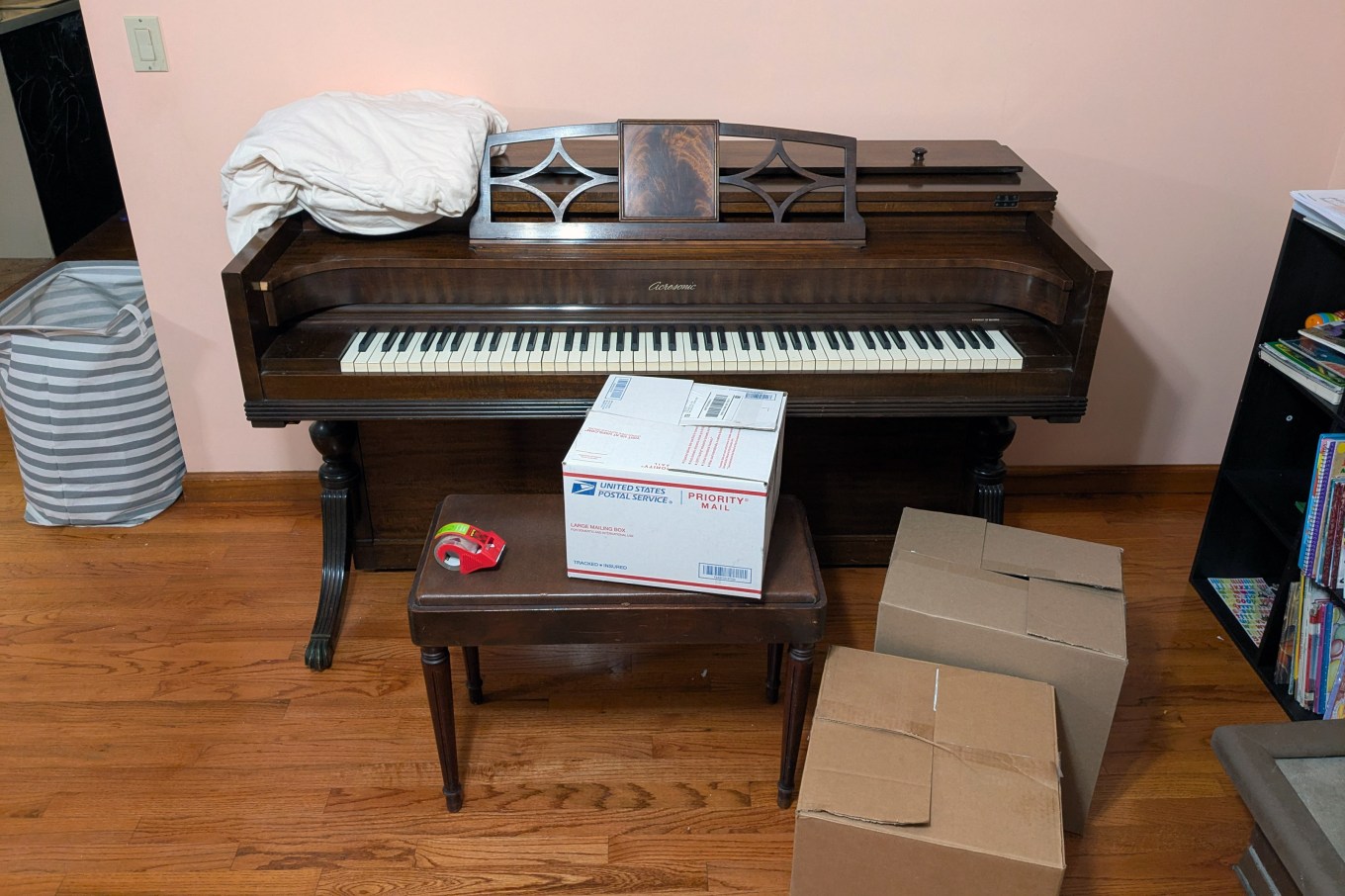Discarding household items used to be simple. Your options were mainly holding a yard sale, donating to charitable organizations that had plenty of space, or filling up your outside trash containers. Today, whether you’re decluttering your home or planning a move, the way you discard problem household items can be a lot more complicated. Before you start pouring that expired rubbing alcohol down the drain, find out what experts advise about how to declutter your home of unwanted stuff.
The Biggest Disposal Challenges in Decluttering and Moving
The heaviest lift is discarding or donating the “big, bulky stuff — things like old couches, mattresses, refrigerators, exercise equipment, and oversized furniture,” says Nick Friedman, co-founder of College H.U.N.K.S. Hauling Junk and Moving. “Those items are tough to move on your own, and a lot of donation centers won’t take them if they’re worn out.”
Charles Chica, co-owner of CT Best Movers in New Haven, Conn., remembers a client desperate to unload a grand piano before a move. “They finally found a church that would accept it, but moving a piano safely requires special equipment and expertise.” The takeaway: Allow time to find resources to take those large items and to move them.
Common items:
- Grandfather clocks
- Hot tubs and saunas
- Mattresses
- Pianos
- Sofas, chairs, and dining tables
- Treadmills and other oversized exercise gear
Resources to try:
- Donation centers: The Furniture Bank Network, Goodwill, and Habitat for Humanity ReStores accept furniture and household items, sometimes with free home pick-ups. Policies vary.
- Online resell or giveaway: Facebook Marketplace, Buy Nothing Groups, and NextDoor can connect you with buyers or people willing to haul away items. “There are always people willing to take just about anything for free,” Chica notes. “The big hurdle is the cost of moving larger items — even if they’re free.”
- Junk removal services: Costs range from an average $100 to $400, depending on the item type, volume, and local pricing. Services like 1-800-GOT-Junk may offer discounts if you go through an real estate agent who is a REALTOR®, a member of the National Association of REALTORS®.
What Can’t You Throw in a Dumpster When Decluttering?
Dumpsters.com and Waste Management say you shouldn’t throw these items in dumpsters:
- Aerosol cans
- Appliances (especially those containing Freon)
- Batteries
- Chemical products (cleaners, solvents)
- Dirt
- Electronics (cellphones, computers, TVs, monitors)
- Expired medications
- Flammable liquids
- Fluorescent light bulbs
- Herbicides, pesticides, antifreeze
- Hot water tanks
- Large pieces of furniture
- Mattresses and box springs
- Oil filters
- Paint and lacquer
- Propane tanks, fuels, oil, and other flammable materials
- Rubbing alcohol
- Tree stumps
If you’re tempted to toss a bag of batteries in the dumpster under cover of darkness, be aware that violations can rack up fines and penalties from your local government or environmental agency, as well as your dumpster provider. Instead, explore these legit ways to discard and declutter — and stay out of trouble.
Disposal Resources and Tips When Planning a Move or Decluttering
Here are disposal ideas by category:
Hazardous Materials: Handle With Care
Some items — like rubbing alcohol, half-used paint cans, or household cleaners — require special disposal. Professional movers won’t transport them. The U.S. Environmental Protection Agency offers tips for safe handling of household hazardous waste.
Resources to try:
“Most towns often have drop-off sites for paint, chemicals, and electronics,” says Chica. More options include:
- Local environmental, health, or solid waste agencies may have hazardous waste collection days.
- Local businesses that specialize in recycling or garage disposal are possibilities.
- PaintCare has drop-off locations for discarding paint in many states.
- Pharmacies and some police stations have medication take-back programs.
- The Drug Enforcement Administration sponsors an annual National RX Takeback Day, and the U.S. Food & Drug Administration offers guidelines for safe disposal of medicines.
Where to Discard Batteries and Outdated Electronics
The average U.S. household generates about 47 pounds of electronic waste per year, according to the United Nations Global E-Waste Monitor of 2024.
Options for safe disposal:
- Batteries: Drop-off bins at places like Home Depot, Lowe’s, Staples, or Call2Recycle.org
- Electronics: Best Buy, Staples, community e-waste events, and manufacturer take-back programs (Apple, Dell, and HP)
- Cellphones and computers: Nonprofits like the National Coalition Against Domestic Violence, Digitunity, and Cell Phones for Soldiers
Always wipe personal data before donating.
Resources for Garage and Garden Products
Propane tanks, lawn chemicals, fertilizer, and old gasoline require careful disposal. Many municipalities and fire departments accept hazardous household materials. You can donate unopened supplies to community garden centers.
Resources to try:
- Municipal hazardous waste programs
- Auto shops or fire departments for gas and propane
- Community gardens for unopened supplies
Batch Household Items for Easier Decluttering and Move Decisions
When you’re deciding how to declutter your home and how to prepare for a move, headaches can come from parting ways with “sentimental items, oversized furniture, and ‘maybe one day’ clutter, like unused electronics,” says Rob Rimeris, founder of EverSafe Moving Co. in Philadelphia. “If you group the items, it’s easier to decide whether they’re worth hauling or should go to donation or removal.”
The disposal process for some household items may take a little more time and effort than it used to, but you can keep it simple. Tips and resources will help you make the right decisions to travel lighter while decluttering or before a move.
